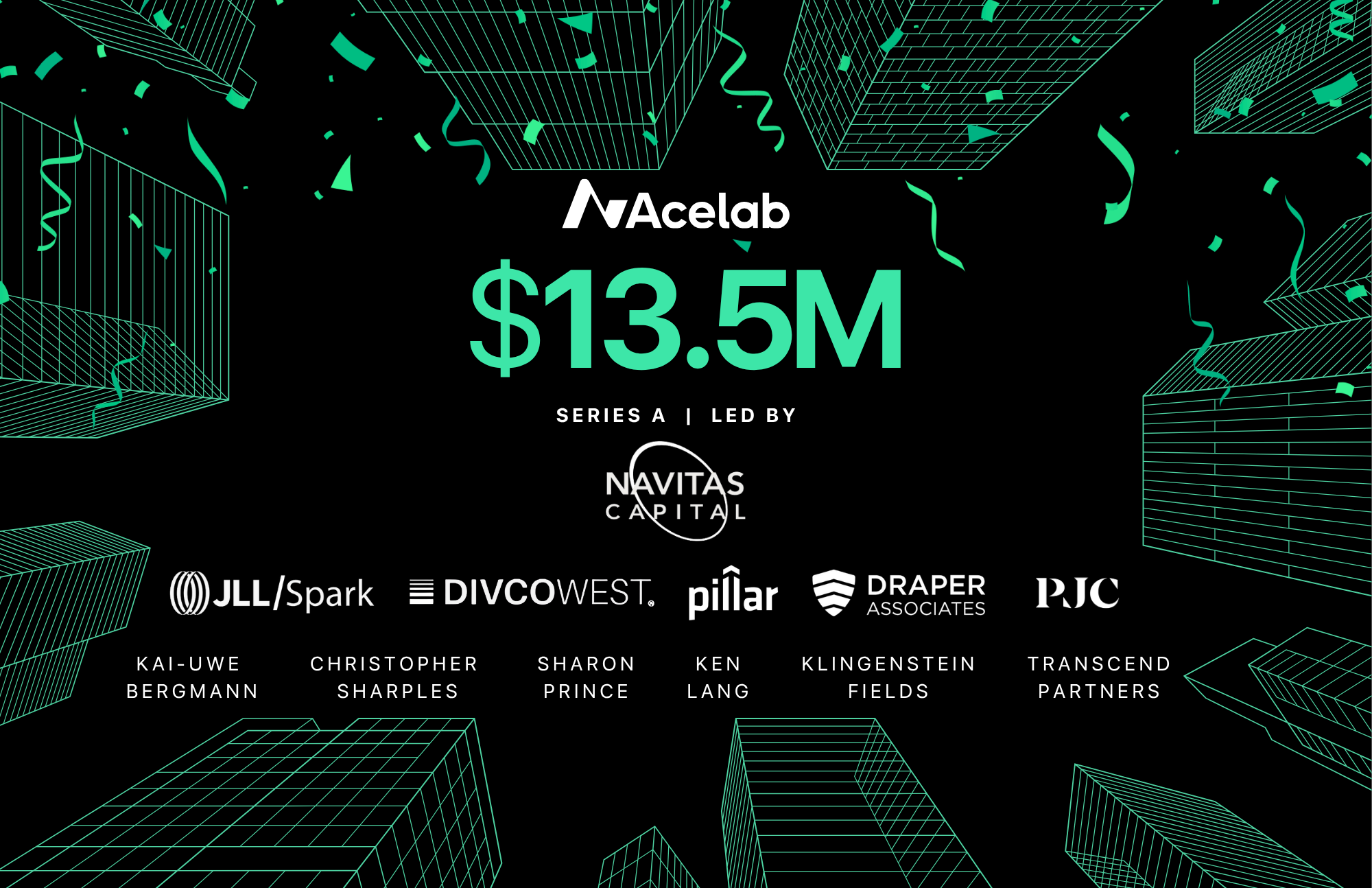
Acelab Raises $13.5M Series A to Build the AI Brain for Architecture's $2.4T Construction Materials Market
21 October 2025
More than half of the top 100 architecture firms now use Acelab’s Material Hub platform that brings AI and real-time collaboration to building material selection
NEW YORK — While most industries have been transformed by AI and digital platforms, architecture firms still rely on outdated PDFs, phone calls, and fragmented databases to select the $600 billion in building materials used annually in US construction. Acelab, which has built an AI-powered platform called Material Hub to modernize this process, today announced $13.5 million in Series A funding. Navitas Capital led the round, with participation from strategic investors including JLL Spark and DivcoWest. The round also included participation from notable architects and industry figures such as Kai-Uwe Bergmann (Partner at BIG), Christopher Sharples (Founding Principal of SHoP), and Sharon Prince (Founder & CEO of Grace Farms Foundation), alongside returning investors Pillar VC, Draper Associates, PJC, Ken Lang, Klingenstein Fields, and Transcend Partners. The Series A brings Acelab's total funding to over $25 million.
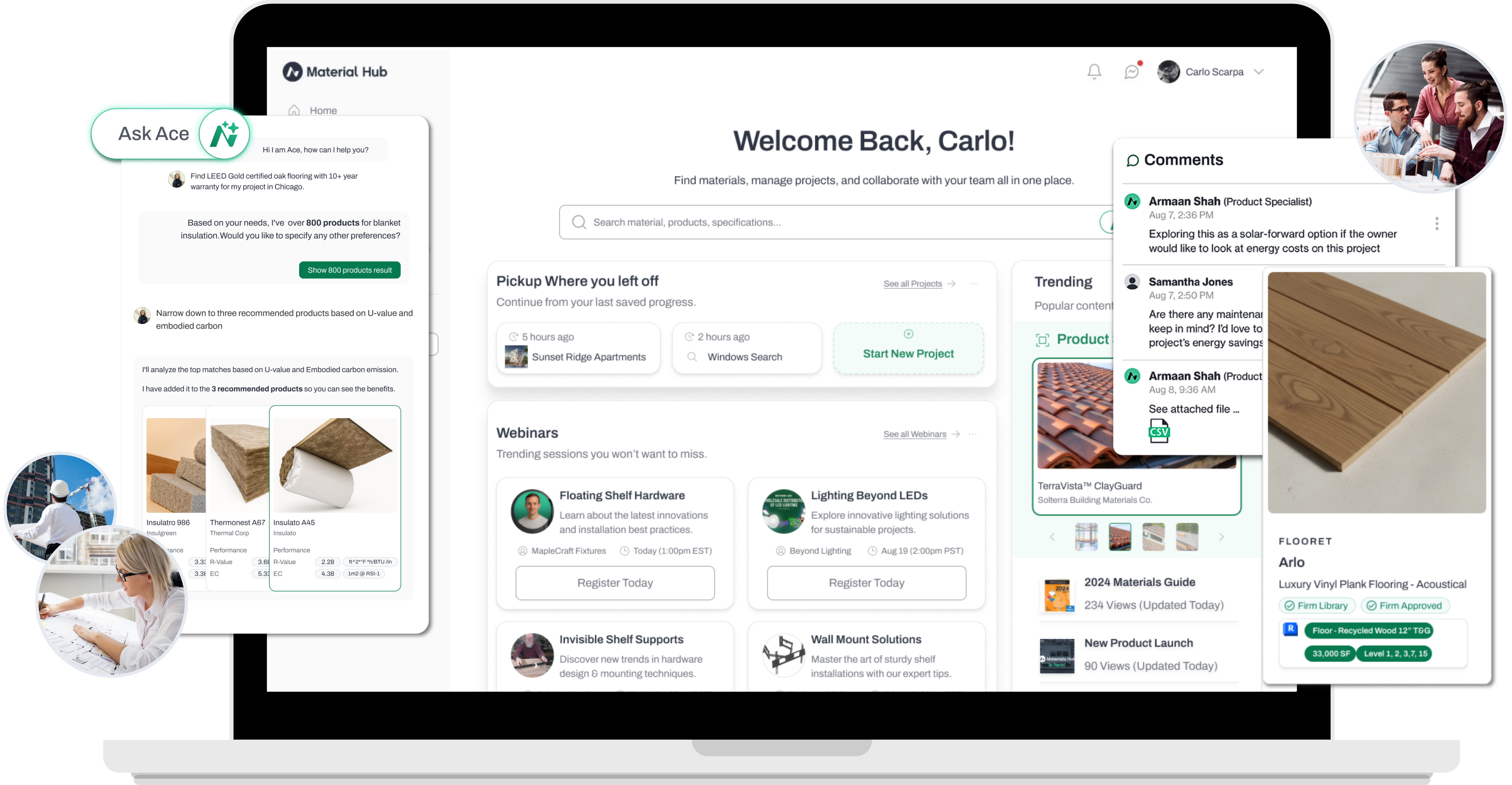
"Acelab's Material Hub is emerging as the definitive platform for material selection," said Travis Putnam, Managing Partner at Navitas Capital. "Acelab is ensuring architects, owners, and contractors select the best building products in a single collaborative workflow, resulting in better performing buildings and stronger alignment across project teams."
More than 20,000 architecture and design firms now use Acelab's Material Hub, including half of the top 100 firms such as Gensler, AECOM, Stantec, and CannonDesign. The platform has grown significantly year-over-year and processes millions in material specifications monthly.
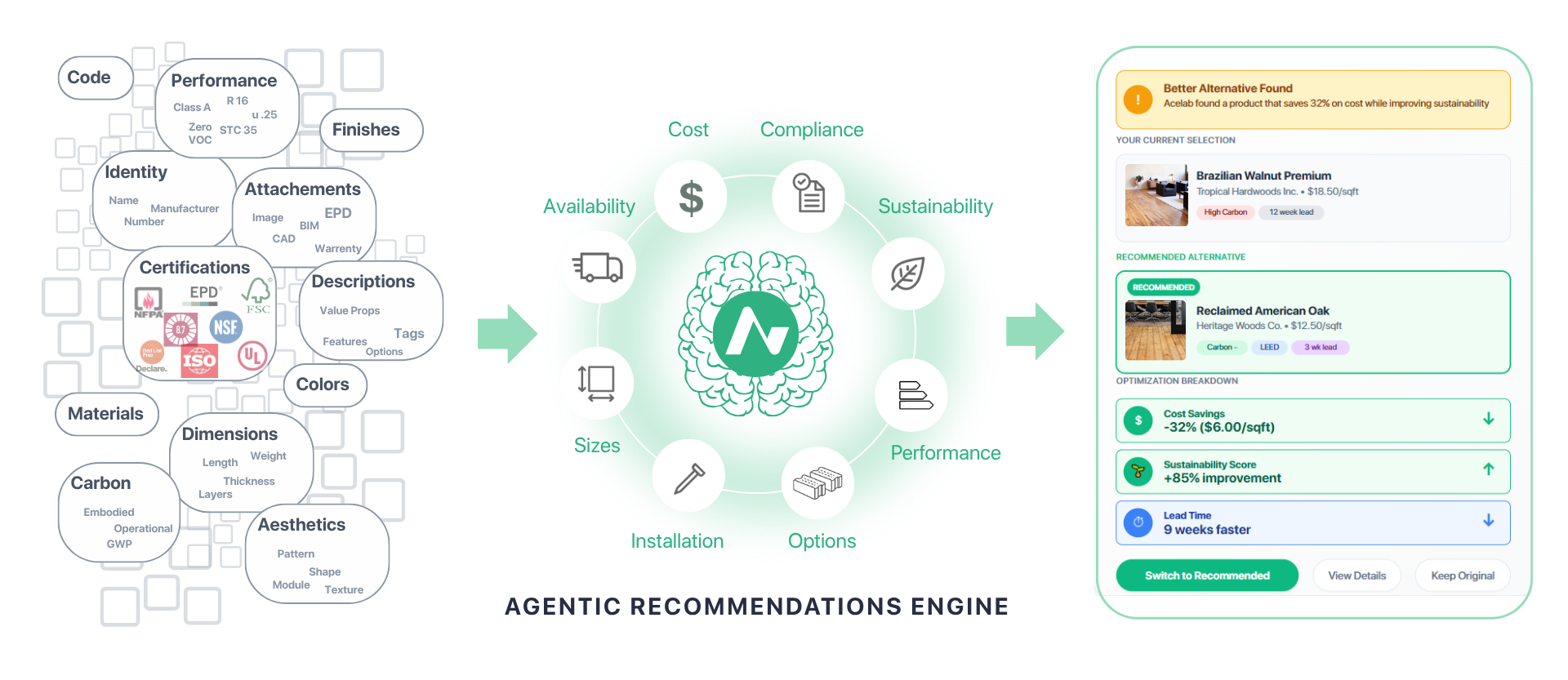
"We're at an inflection point where AI can finally tackle the complexity of architectural decision-making," said Vardhan Mehta, co-founder and CEO of Acelab. "Our vision is to become the trusted AI infrastructure for every material decision in the built environment—from skyscrapers to schools to single-family homes."
The building materials industry represents a massive yet largely analog market. Materials account for 40-50% of any construction project's cost, yet architects spend countless hours manually searching through catalogs, calling manufacturers, and coordinating specifications. This inefficiency costs the industry an estimated $30 billion annually in project delays and rework. The Material Hub platform delivers value in researching, selecting, and document building materials through three core areas:
1. AI-Powered Material Intelligence- Acts like having the industry's best specification expert available 24/7, understanding nuanced requests like "slip-resistant tiles for freeze-thaw cycles in Seattle" and providing expert guidance through natural conversation
- Processes comprehensive data from 150,000+ building products to recommend optimal solutions based on climate, performance, and budget constraints
- Learns from every successful specification to continuously improve recommendations, ensuring better material choices lead to better performing buildings
- Centralizes all critical material information in one place — Technical specs, performance data, pricing, sustainability metrics, and code compliance accessible to architects, contractors, and owners
- Provides integrated collaborative tools for stakeholders to review and approve specification decisions while enabling direct connections with building product manufacturers for technical support
- Automates critical documentation including Revit drawings, specifications, and schedules - Eliminating manual coordination and reducing errors from approved material selections
- Transforms scattered material knowledge into organized digital standards accessible to entire teams, ensuring consistent quality decisions across all projects
- Captures project-by-project learnings in one central location - What worked, what didn't, and why - allowing all team members to benefit from past experiences
- Builds evolving material standards that grow smarter with each project, ensuring the next building benefits from every lesson learned while maintaining expertise as team members transition
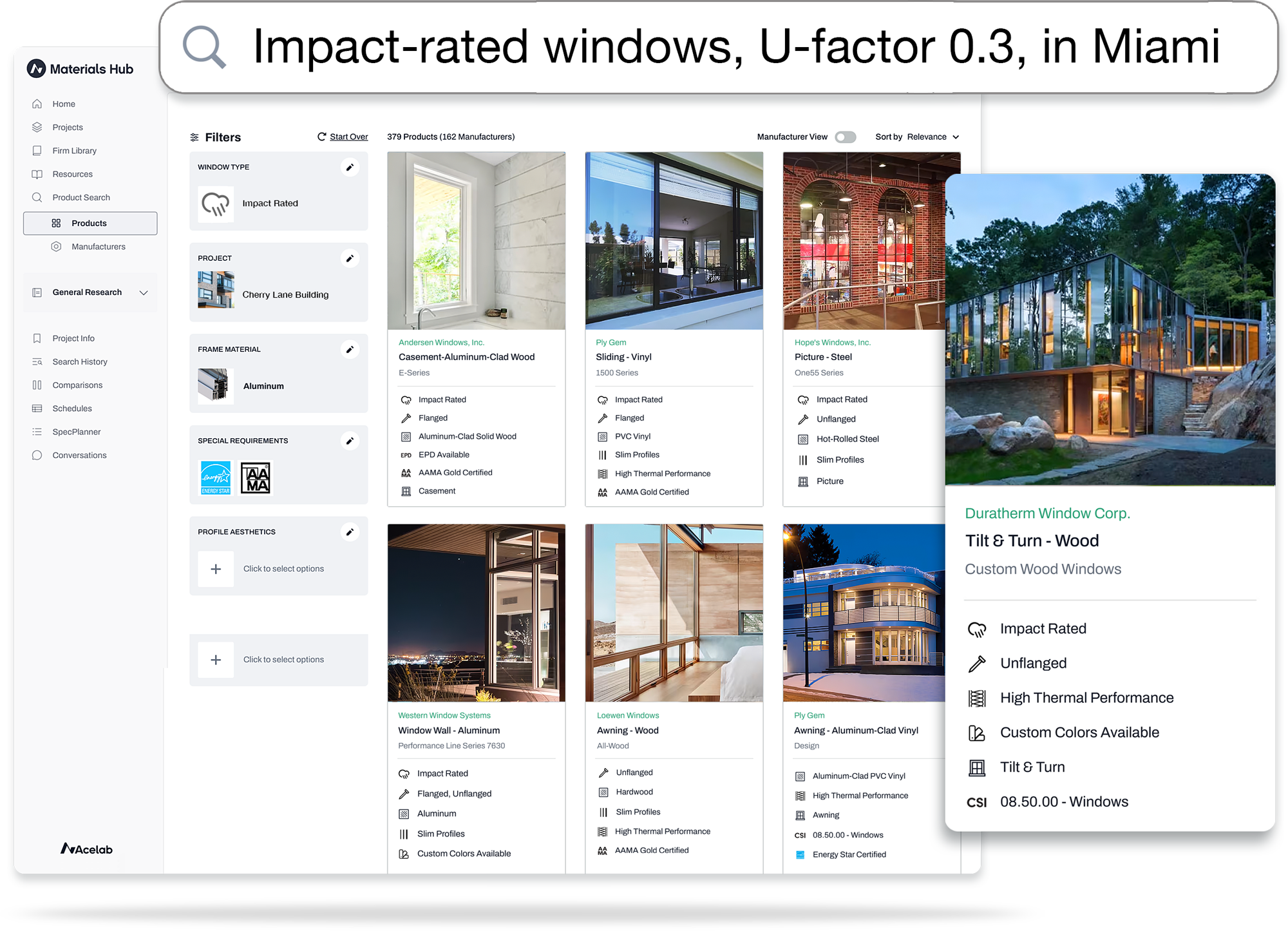
"Acelab is tackling one of the building industry's biggest gaps: the lack of a standard operating system for making material decisions," added Dave Lemont, Acelab's Executive Chairman and former CEO of Revit, the industry's leading design software. "Materials have a profound impact on a building's aesthetics, performance, and sustainability, but the process of selecting them has long been fragmented. Acelab is changing that."
“JLL's global team of nearly a thousand in-house architects and designers supports the largest owners on workplace design, multi-site rollouts, and retail retrofits. Acelab's Material Hub allows our teams to streamline an otherwise tedious and iterative material selection process and balance an owner's project-specific goals (aesthetics, cost, timeline) with its enterprise commitments (brand, environmental impact, compliance). Its AI-native workflow enables service alignment and standardization for our global enterprise, supports our professionals in delivering exceptional white glove service, and leads to an outstanding end-product for our clients," said Ajey Kaushal, Investment Principal at JLL Spark.
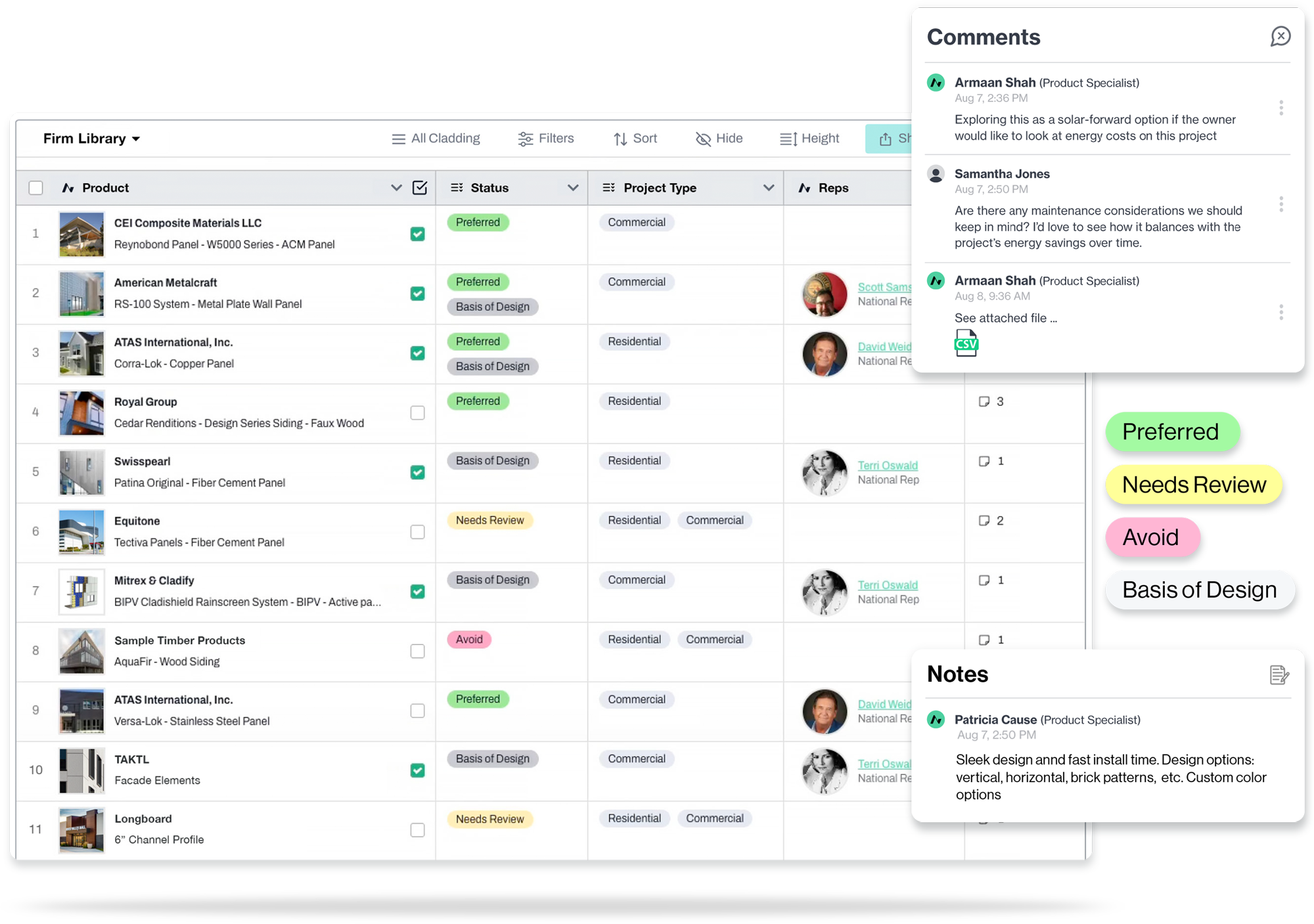
The company plans to use the funding to expand its AI capabilities, enter new geographic markets, and build deeper integrations with major design software platforms. Acelab is already exploring applications in adjacent markets, including interior design, engineering, and infrastructure.
For more, read the feature story in Commercial Observer.
About Acelab
Acelab's Material Hub empowers architects & designers to seamlessly research, select, and document materials. Founded in 2020 and backed by leading venture funds and strategic industry investors, Acelab serves over 20,000 firms across North America. Learn more at www.acelabusa.com.
